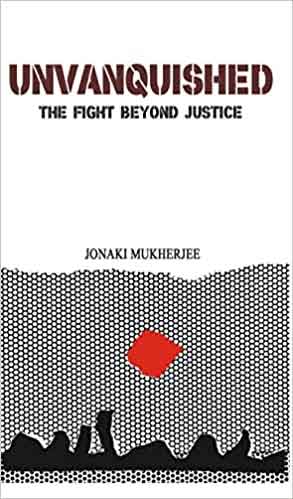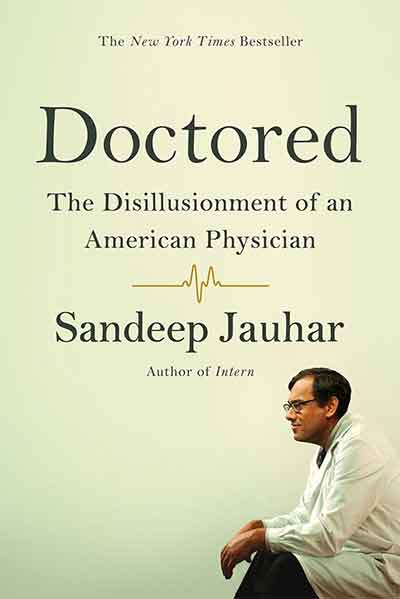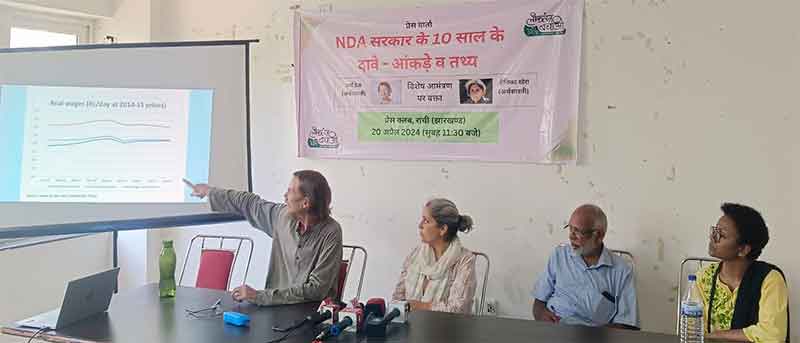Dr. Jonaki Mukherjee is a Kolkata-based, dedicated teacher of small and growing children and is a distinguished counsellor. She is also a part of the West Bengal Women’s Commission. The book is a powerful reflection of emotional nostalgia that are narrations of her personal journey with women she has interacted with, mostly as counsellor.
 Books authored by counselling experts are likely to be heavy on academic theory or monotonous narrations of sad and tragic stories of oppressed, marginalised, tortured and victimised women. But Jonaki steers away completely from academic theory which would have narrowed down her readership considerably. That she calls her book Unvanquished proves that she considers the subjects of her stories to be bold women who did not take anything in their lives lying down just because they were women.
Books authored by counselling experts are likely to be heavy on academic theory or monotonous narrations of sad and tragic stories of oppressed, marginalised, tortured and victimised women. But Jonaki steers away completely from academic theory which would have narrowed down her readership considerably. That she calls her book Unvanquished proves that she considers the subjects of her stories to be bold women who did not take anything in their lives lying down just because they were women.
The second part of the title, “The Fight Beyond Justice” spells out how the legal and judicial machinery have mostly failed to bring justice to these women either because they decided to fight their battles away from the court, or, because they felt that the legal and judicial system would be superfluous in rescuing them from their terrible struggles and give them the justice that they need and deserve, or both. Shubha Mudgal’s Foreword is a value-addition to the work.
Jonaki has dedicated her book to “All the Women who bleed, who fight. And don’t give up.” This explains her desire to put their stories of courage in writing and this marks Jonaki herself as a woman of great courage who had the fearlessness within her to put down the stories of these women in writing and bring them out in the form of a book.
The book carries the stories of ten women classified into ten chapters. The stories are heart-breaking and at the end of each such story, every single one picked from real life, Jonaki puts in her own ‘reading’ on these women in the section “Author Speak” which gives her interpretation from the said woman’s story of struggle, violence and so on.
Damini, the first story, is about how a young girl with stars in her eyes, dreamt of educating herself but her dreams were dashed when they forced her into marriage before she could take in the board exams. Her husband Nitai was no prince from any fairy tale and inflicted sexual violence on her every night when the doors were shut after an entire day of back-breaking housework she had to do against the background score of her mother-in-law/s constant nagging.
Her grandmother had lied to her about persuading them to allow her to continue her education. So, school was out. Her tolerance began to break when she became a mother. She did not want the boy to grow up like his father, a mother’s son who comes into his own in bed. She finally leaves her marital home but they do not permit her to take her son with her. She takes help from an educated employer which finally leads to her gaining custody of her son and also begin working in a beauty parlour opened by the same lady and named after her, Damini.
In her summation, the author states that sadly, most women sacrificed at the altar of gender – for being born a girl – do not realise that they need not take everything lying down specially from their husband and in-laws. But most of them are not even aware that there is help around through NGOs and government agencies to counsel them so that they not only come out of the trap of torture but can also add meaning to their lives.
Salma’s Way is about a single mother Najma and her daughter Salma who wants to study and avoid the kind of life forced on her mother. Widowed young, Najma struggled her way through to educate her gifted daughter. But sadly, though Salma who was studying for a degree in zoology, and also gave tuitions to help her mother who worked in a small school and also moonlighted in the evenings as a tailor. Najma’s sole aim now was to get her daughter married. Why? Was marriage a guarantee for a secure future for all women? Did she not learn from her own life when her husband passed away leaving her a ten-year-old daughter to bring up and educate? But Salma, after years of torture from her in-laws and her husband, tore off all ties even legally and went back to her mother.
The girls and the women in the other stories, namely, Debdatta, The Perfect Wife, Mayah’s Tale, Parbati’s Predicament, Rays of Hope – The Story of Asha, The Gift, The Matriarch, and The Nest throw up different facets of women who rose above their victim identity to triumph and begin life anew.
It all boils down to the fact that one is born a girl in a man’s world where the man has the first, the middle and the last word never mind if it is the father, the brother, the husband, the lover, or the son. Jonaki, through her case studies, clearly puts across a powerful argument backing the education and employment of women which are the only two weapons to fight the invisible but very strong war of patriarchy. If education is beyond the family’s means, then simple skills like stitching, coaching, home delivery of food can easily be resorted to as an agency to empower oneself.
The language she uses is simple, straightforward and does not beat around the bush at any point. It is very reader friendly which every girl/woman who can read and understand English can benefit from.
Unvanquished is not only a reader-friendly book but it is also egalitarian and democratic which means that the author, while narrating the stories of the women she has counselled over the years, never talks down to them or patronises them in any way through her writing which explains why she took on teaching as a profession and counselling as activism for less fortunate women in society.
About the production values of the book – the cover designed by the famous Hiran Mitra is an attraction unto itself. Bee Books, the publishers, could have been a bit more caring about the binding which is a bit too tight for reader comfort but the font-size is very reader-friendly.
I wish if there is a second edition, Jonaki would do well to add a list of counselling centres for women with names, addresses and contact details for readers who might need help at any point.
A very comfortable and good read indeed.
Shoma A. Chatterji is a freelance journalist, film scholar and author contributing to several digital and print media in India and beyond. She has authored 27 books and two more are in the pipeline. She has won the National Award for Best Writing on Cinema twice. She lives in Kolkata.















































